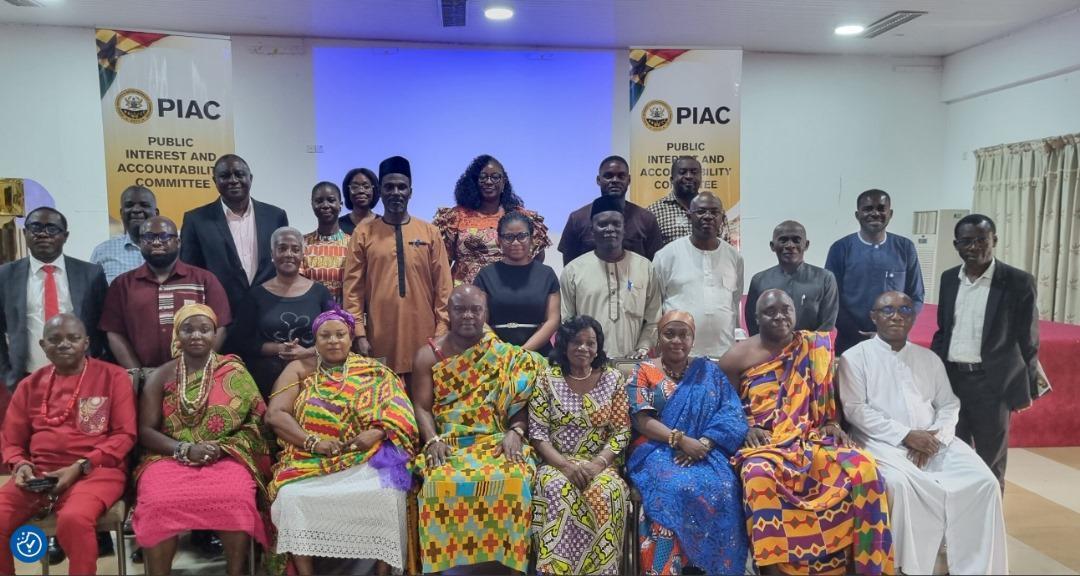Africa-Press – Ghana. The Annual General Assembly meeting of the Public Interest Accountability Committee (PIAC) has ended with constituent bodies affirming the need to improve public accountability in the use and management of petroleum revenue.
The Assembly which was made up of committee members and representatives from the 13 constituent bodies also discussed best practices and the needed reforms in the management and use of the country’s petroleum revenues.
The meeting provided the platform for the committee to inform constituents about the work of PIAC, explore collaborative options, and solicit feedback on ways of improving PIAC’s work.
Speaking at the meeting, Emerita Professor Elizabeth Ardayfio-Schandorf, the Chairperson of PIAC, said the Committee recognised the need to collaborate with its constituent bodies to be able to effectively disseminate its work and keep citizens informed to demand accountability in the use of petroleum revenues.
PIAC, she noted, remained committed to upholding the tenets of transparency and accountability to ensure that revenues were utilised efficiently for the benefit of all citizens.
Sharing highlights from the 2023 annual report, she said crude oil production saw a decrease of 6.78 per cent in 2023, the fourth consecutive year of reduction in annual production volumes since 2010.
She attributed the development to a lack of investment in discovering new fields and the natural ageing of existing fields.
She also presented findings and recommendations by the Committee in the Report.
The representatives, for their part, highlighted the need for PIAC to keenly monitor the ongoing review of the PRMA to ensure that it was further strengthened with an enforcement mandate to be able to implement its recommendations.
They also emphasised the need for more public education to carry citizens along in the work of PIAC.
This, they suggested could be done through an improved dissemination of PIAC reports and its activities and improved collaboration with the media.
Ultimately, the Constituent Bodies want to see a PIAC more strategised to operationalise the spirit and letter of the Petroleum Revenue Management Act (PRMA) to ensure there was increased transparency and also getting duty bearers to be more accountable.
The membership of PIAC is drawn from 13 constituent bodies made up of professional institutions, pressure groups, religious bodies, and traditional groups to represent Ghana society.
Institutions represented on the committee are Independent Policy Research Think Tanks, Civil- Society Organisations and Community-based Organisations of the Trade Union Congress, the National House of Chiefs, the Association of Queen Mothers, the Association of Ghana Industries and the Chamber of Commerce and Industry.
The rest are Ghana Journalists Association, Ghana Bar Association, Institute of Chartered Accountants, Ghana, Ghana Extractive Industries Transparency Initiative, Christian Groups, Muslim Groups, and Ghana Academy of Arts and Sciences.
The PRMA, 2011 defines the tenure of each constituent body, each of which nominates a member for a period which is either a fixed three-year tenure or a two-year tenure renewable for another term only.
For More News And Analysis About Ghana Follow Africa-Press







